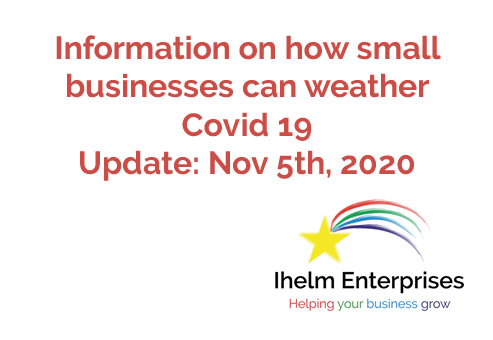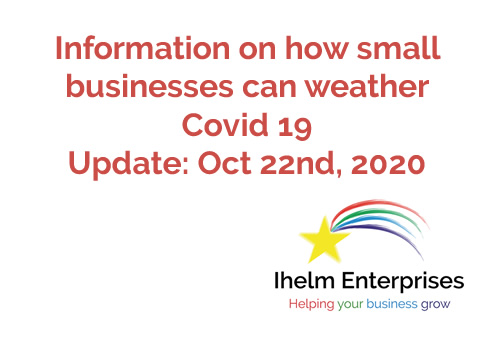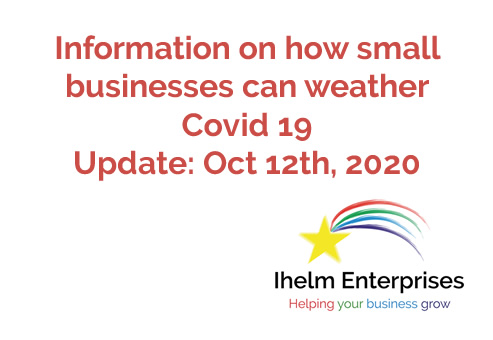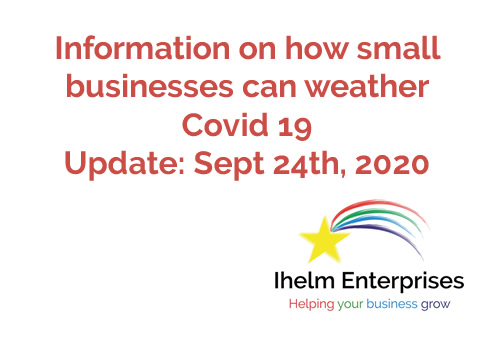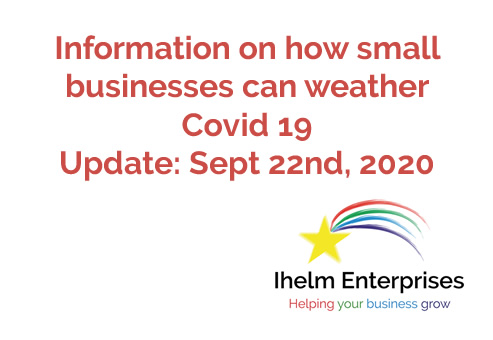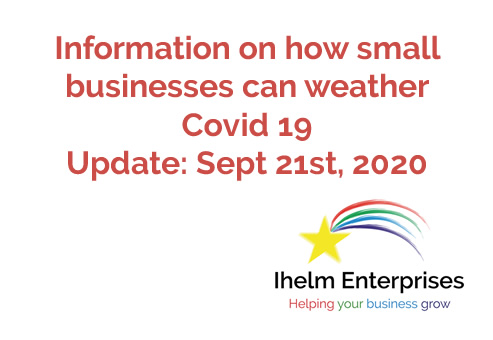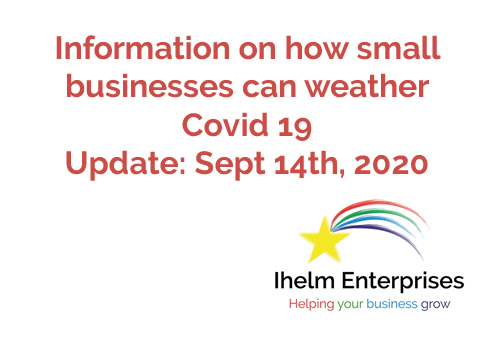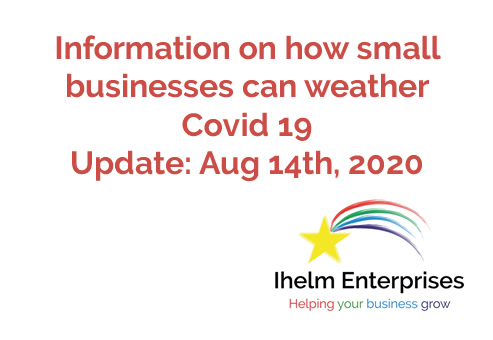After announcing his plan to the House of Commons earlier today, the Prime Minister held a press conference this evening to let the public know what the plan is going to be going forwards. From December 3rd, 2020, England will leave the current national lockdown and return to the previous 3-tier system. However, there will be some changes to the system. The government will announce on Thursday which areas will be in which tier.
All Tiers
- everyone, unless they have an exemption, must wear a face-covering in most indoor public settings
- follow the rules on meeting each other safely
- should attend school/college unless self-isolating
- should walk/cycle where possible and avoid public transport
- must follow the gathering limits as per their tier except in specific circumstances
- all businesses/venues that are open must follow Covid-19 secure guidelines other than those that are still required to remain closed by law (ie nightclubs)
- in all tiers the following businesses can be open:
- essential and non-essential retail including indoor/outdoor markets and car boot sales
- some leisure and sporting facilities including gyms, sports courts, leisure centres, fitness/dance studios, golf courses, swimming pools, riding centres, outdoor playgrounds – subject to the relevant social contact rules for each tier. In Tier 3, indoor group activities and classes should not take place.
- personal care/close contact services – hairdressers/barbers, beauty salons, tattoo parlours, nail salons, spas/beauty services, massage parlours and tanning salons
- public buildings like libraries, community centres and halls. In Tier 3, they should not host events for private hire like birthday parties.
- places of worship subject to relevant social contact rules in each tier
- everyone who can work from home should continue to do so; those who cannot may include people who work in critical national infrastructure, construction, manufacturing, public-sector employees working in essential services like education settings.
There are then specific rules for each Tier.
Tier 1:
- must not social in groups larger than 6 people indoors/outdoors, except where there is a legal exemption
- hospitality businesses selling food/drink for consumption on their premises must:
- provide table service only (for premises that serve alcohol)
- close between 11 pm and 5 am (venues in airports/ports/transport services/motorway services are exempt)
- stop taking orders after 10 pm
- hospitality businesses and venues selling food/drink for consumption off-premises can continue to do so after 10 pm as long as it is only through delivery, click-and-collect or drive-through
- early closure of venues (11 pm) applies to casinos, cinemas, theatres, museums, blowing alleys, arcades, theme parks, bingo halls
- public attendance at outdoor/indoor events, spectator sports and business events can resume inside and outside, subject to social contact rules and limited to whichever is lower: 50% capacity, 4,000 people outdoors or 1,000 people indoors
- places of worship can remain open but people must not gather in groups of more than 6
- weddings with a maximum of 15 people, funerals with a maximum of 30 people and commemorative events with a max of 15 people can go-ahead
- organised outdoor sport, physical activity and exercise classes can continue
- organised indoor sport, physical activity and exercise classes can continue if the rule of 6 is followed. There are exceptions for indoor disability sport, sport for educational purposes, supervised sport and physical activity for under-18s.
- if you live in Tier 1 and travel to an area in a higher Tier you should follow the rules for that area while you are there. You should avoid travel/overnight stays in Tier 3 areas other than where necessary (work, education, youth services, medical treatment, caring responsibilities). You can travel through a Tier 3 area as part of a longer journey.
Tier 2:
- you must not socialise with anyone you do not live with or who is not in your support bubble, in any indoor setting (including home and public places)
- you must not socialise in a group of more than 6 people outside including in a garden or public space
- pubs and bars must close unless operating as restaurants. Hospitality venues can only serve alcohol with substantial meals
- hospitality businesses selling food or drink for consumption on their premises are required to:
- provide table service only (in premises that sell alcohol)
- close between 11 pm and 5 am (venues in airports/ports/transport services/motorway services are exempt)
- stop taking orders after 10 pm
- hospitality businesses and venues selling food/drink for consumption off-premises can continue to do so after 10 pm as long as it is only through delivery, click-and-collect or drive-through
- early closure of venues (11pm) applies to casinos, cinemas, theatres, museums, blowing alleys, arcades, theme parks, bingo halls
- public attendance at outdoor/indoor events, spectator sports and business events can resume inside and outside, subject to social contact rules and limited to whichever is lower: 50% capacity, 2,000 people outdoors or 1,000 people indoors
- places of worship can remain open you must not socialise with anyone outside of your household or support bubble
- weddings with a maximum of 15 people, funerals with a maximum of 30 people and commemorative events with a max of 15 people can go-ahead
- organised outdoor sport, physical activity and exercise classes can continue
- organised indoor sport, physical activity and exercise classes will only be permitted if it is possible for people to avoid mixing with people they do not live with (or share a support bubble with). There are exceptions for indoor disability sport, sport for educational purposes, supervised sport and physical activity for under-18s.
- you can continue to travel to venues or amenities which are open but should aim to reduce the number of journeys you make where possible
- if you live in Tier 2 you must continue to follow Tier 2 rules when you travel to a Tier 1 area. Avoid travel/overnight stays in Tier 3 areas other than where necessary (work, education, youth services, medical treatment, caring responsibilities). You can travel through a Tier 3 area as part of a longer journey.
Tier 3:
- you must not meet socially indoors or in most outdoor places with anyone you do not live with, or who is not in your support bubble; includes in any private garden or at most outdoor venues
- you must not socialise in a group of more than 6 in some other outdoor public spaces including parks, beaches, countryside accessible to the public, public gardens, grounds of a heritage site/castle, sports facilities
- hospitality settings such as bars (including shisha venues), pubs, cafes and restaurants are closed – they are permitted to continue sales by takeaway, click-and-collect, drive-through or delivery services
- accommodation such as hotels, B&Bs, campsites, guest houses must close. There are exemptions such as for those who use these venues as their main residence and those requiring the venues where it is reasonably necessary for work, education or training.
- indoor entertainment and tourist venues must close which includes: indoor play centres/areas including trampolining parks and soft plays, casinos, bingo halls, bowling alleys, arcades, cinemas, theatres, concert halls etc
- indoor attractions at mostly outdoor entertainment venues must close (indoor shops, through-ways and public toilets can stay open). Includes indoor attractions within zoos/safari parks, aquariums, visitor attractions at farms, museums, galleries, botanical gardens, theme parks, circuses, visitor attractions at film studios, heritage sites
- no public attendance at spectator sport or indoor performances and large business events should not be taking place.
- large outdoor events should not take place with exception of drive-in events
- places of worship remain open but you must not attend with or socialise with anyone outside of your household/support bubble
- weddings with a maximum of 15 people, funerals with a maximum of 30 people and commemorative events with a max of 15 people can go-ahead
- organised outdoor sport, physical activity and exercises classes can continue – but higher-risk contact activity should not take place
- organised indoor sport, physical activity and exercises classes cannot take place. There are exceptions for indoor disability sport, sport for educational purposes, supervised sport and physical activity for under-18s.
- you can continue to travel to venues or amenities which are open but should aim to reduce the number of journeys you make where possible
- avoid travelling to other parts of the UK, including overnight stays other than where necessary (work, education, youth services, medical treatment, caring responsibilities). You can travel through other areas as part of a longer journey.
There is further information about the various exemptions and additional guidance as I didn’t include every single type of business/venue within the different tiers and you can read that here: https://www.gov.uk/guidance/local-restriction-tiers-what-you-need-to-know
The government will be making further announcements on Thursday about what Tier each area will be in, so I will be monitoring that information, as well as any further developments.
I am continually monitoring the updates that the government and other business-related departments release and will continue to share that information for as long as I feel that it is beneficial to all businesses in the UK.
The information and policies are continually being updated by the government, so I urge you to keep on top of the information by visiting the relevant website for your area.
UK: https://www.gov.uk/government/publications/guidance-to-employers-and-businesses-about-covid-19/covid-19-support-for-businesses
Scotland: https://www.gov.scot/coronavirus-covid-19/
Wales: https://gov.wales/business-and-employers-coronavirus
Northern Ireland: https://www.nibusinessinfo.co.uk/
I will be trying to keep myself as informed as possible and will share relevant information on my fb business page: https://www.facebook.com/ihelmenterprises/


